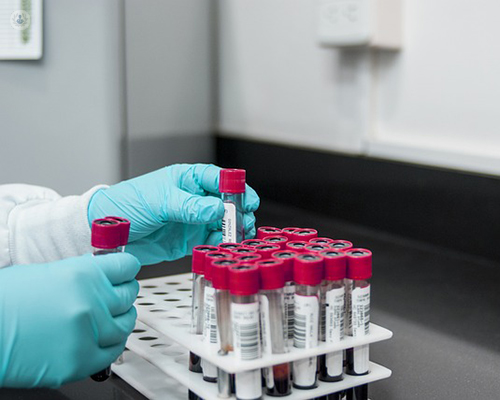Anti-centromere antibody testing
What is analysed in this type of test?
Anti-centromere antibodies (ACA) are proteins that target specific areas of the cell nucleus called centromeres. This analysis involves the detection of these antibodies in a patient's blood.

When is anti-centromere antibody testing requested?
ACA analysis is typically requested when there is a suspicion of autoimmune diseases, particularly systemic sclerosis (scleroderma). Symptoms such as Raynaud's phenomenon, skin thickening, and internal organ involvement may prompt the need for this test.
Why is this type of test performed?
The analysis is conducted to diagnose and monitor autoimmune conditions, especially systemic sclerosis. Detecting anti-centromere antibodies helps in confirming the presence of autoimmune responses in the body.
When is anti-centromere antibody testing performed?
ACA analysis is usually performed when clinical symptoms and other diagnostic findings suggest an autoimmune disorder. It is part of a comprehensive evaluation to determine the underlying cause of symptoms.
Sample requirements
A blood sample is required for ACA analysis. This involves a standard blood draw, and no specific sample preparation is necessary.
Preparation requirements
No specific preparation is needed for ACA analysis. Patients can undergo the blood draw without fasting or making any special arrangements.
How are the results from the analysis used?
ACA analysis results contribute to the overall diagnostic picture. Positive results, along with other clinical and laboratory findings, aid healthcare professionals in confirming the diagnosis of autoimmune conditions.
Normal values
Normal values for ACA analysis are typically reported as negative. Reference ranges may vary between laboratories, and a negative result suggests the absence of detectable anti-centromere antibodies.
Significance of altered values
Elevated levels of anti-centromere antibodies are associated with autoimmune conditions, primarily systemic sclerosis. This indicates an abnormal immune response that may lead to tissue damage and inflammation.
Reference table

This reference table offers a clear summary for healthcare professionals, indicating the interpretation of results for anti-centromere antibody analysis.